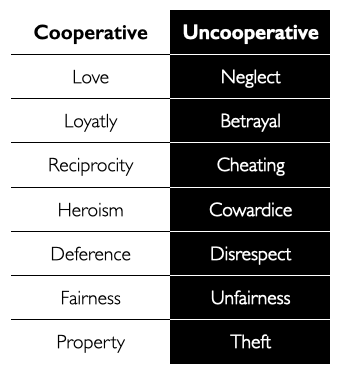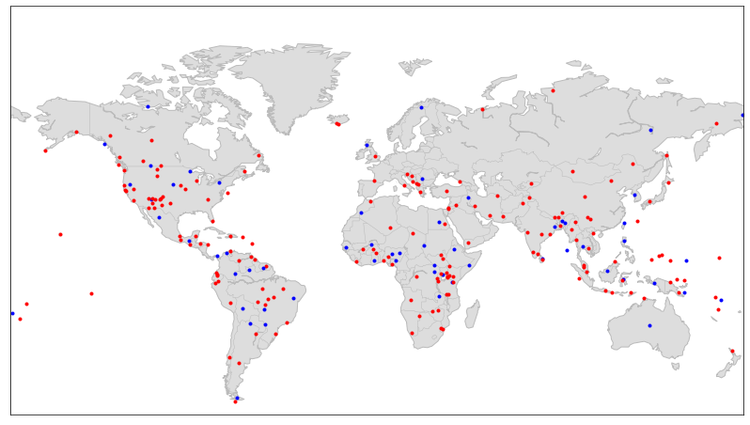🚨Moral Universals: A machine-reading analysis of 256 cultures🚨Delighted to share this new work, with @MoralPsych & Marc Cheong #dic #LIWC #HRAF #moralityascooperation #ethicalatlas osf.io/86qry 🧵
2. What is the cross-cultural prevalence of the seven moral values (love, loyalty, reciprocity, heroism, deference, fairness, property) posited by the theory of Morality-as-Cooperation’ (MAC)? 2/ 

3. Previous research, hand-coding ethnographic accounts of ethics from 60 societies, found examples of most of the seven morals in most societies, and observed these morals with equal frequency across cultural regions. journals.uchicago.edu/doi/full/10.10…
4. What about all the other societies? We developed a new Morality-as-Cooperation Dictionary (MAC-D), and used Linguistic Inquiry and Word Count (LIWC) to machine-code ethnographic accounts of ethics from an additional 196 societies (the entire HRAF corpus). 

5. Again, we find evidence of most of the seven morals in most societies, across all cultural regions. (The frequency of moral words was roughly the same across previously coded, and new, societies.) Some examples:
LOVE: “A cardinal rule of conduct between parents and children is spelled out in the saying, ‘Thou shall agriaha thine children.’…’to give birth to,’ ‘to nourish an infant,’ or ‘to sustain it with life-giving support.’” – Garifuna (Middle America & Caribbean)
LOYALTY: “a strong explicit value: that one should show neighbourliness and a positive interest in the life of all members of one’s local community” – Pashtun (Asia)
RECIPROCITY: “every debt incurred must be repaid and…the ledger of obligations and favors received should remain in balance…quid pro quo is the rule…Navajo…would be loath to accept a favor without making some return.” – Navajo (North America)
HEROISM: “The chief virtue [is] physical bravery; then come personal endurance, both of pain and hardship, constancy in vengeance, and individual strength.” – Mapuche (South America)
DEFERENCE: The “ideal…man and woman…has the following characteristics: (a) Obedience…(b) Respect for his elders, or seniors…(c) Submissiveness…” – Zulu (Africa)
FAIRNESS: “they feel, some mechanism is required to enforce equity…the lot system effectively makes it impossible for anyone to implement favoritism.” – Greeks (Europe)
PROPERTY: “a word igege…which may be translated ‘moral law’, or…‘moral prohibition’. The examples were…not to steal a man’s vegetables, canoes, spears, &c.; not to usurp his fishing rights; not to take his dog to hunt” – Orokaiva (Oceania)
6. We find some counter-examples (mostly admiration of open theft), and detect some minor regional variation: 

7. We also successfully validate the machine-coding against the previous hand-coding. Each moral sub-dictionary remained a significant, and was the best, predictor of the corresponding hand-code when controlling for the other six sub-dictionaries. 

8. These findings lend further support to the theory of ‘morality-as-cooperation’. And MAC-D emerges as the most comprehensive and well-validated tool for machine-reading moral corpora. <ends>
ps ps Please feel free to use the MACD in your own research. The dictionary files (.dic) are available on the OSF page osf.io/86qry/ 

• • •
Missing some Tweet in this thread? You can try to
force a refresh






